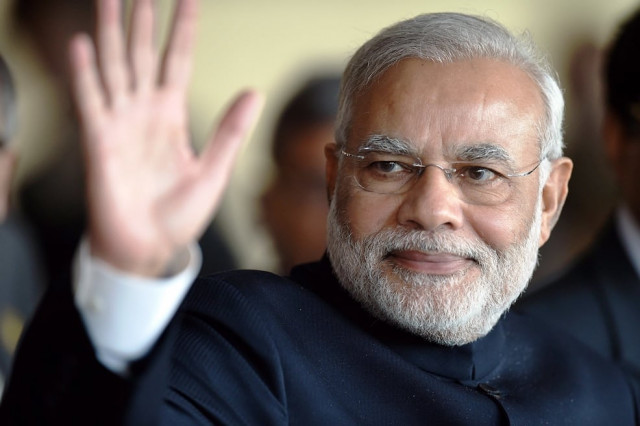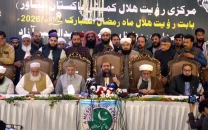India is open to dialogue with Pakistan in violence-free environment: PM Modi
Indian PM says Simla Agreement and Lahore Declaration have to be the basis for going forward in peace talks

Indian Prime Minister Narendra Modi PHOTO: AFP
Ties went into a freeze for India and Pakistan when a Pakistani envoy, despite the discontent of the Indian foreign ministry, held meetings in New Delhi with the Kashmiri Hurriyat leaders last year.
However, both neighbours after a long delay took steps to resume the talks as the Foreign Secretary; S Jaishankar visited Islamabad in March for talks with his Pakistani counterpart.
Read: Ensuring peace and tranquility along border is vital: Indian foreign secretary
"We remain open to bilateral dialogue with Pakistan on all outstanding issues in an environment free from terrorism and violence," Modi told Hindustan Times in an exclusive interview.
In his interview, Modi referred to the two most crucial governance treaties in history, which were signed to normalise relations between the uneasy neighbours and curtail a nuclear arms race in the subcontinent.
"The Simla Agreement and Lahore Declaration have to be the basis for going forward," he said.
As a gesture to improve relations between the neighbouring countries, Modi invited Prime Minister Nawaz Sharif, along with other South Asian leaders to his inauguration last year.
However, Islamabad's talks with Hurriyat leaders further worsened ties.
"Peace can only thrive when the climate is right," Modi said, when asked when the bilateral dialogue could resume.
Discussions between Indian and Pakistan have been halted due to the slow development of the trial of the 2008 Mumbai attacks which led to the belief that Pakistan is not doing much to restrain militant groups in the country.
Read: Mumbai attacks 'mastermind': IHC declares Lakhvi's detention illegal
Islamabad denied the accusations and said it is doing its best to fight Taliban and other military groups on its soil.
Modi also spoke on his pro-active engagement with India's South Asian neighbours, ties that had drifted under the previous UPA government, sparking fears that such apathy would send these nations into China's arms.
Prime Minister Modi made several trips to these countries with the sole purpose of strengthening relations and marking its position in South Asia, while refraining China from making inroads into the region.
"We want peace and prosperity in South Asia, we want SAARC to flourish. This vision of regional cooperation and connectivity impelled me to invite the prime minister of Pakistan and other SAARC leaders to our swearing-in-ceremony,” Modi stated.
"This remains a guiding factor in our foreign policy. The dividends are visible in the quantum leap in relations with Nepal, Bhutan, Bangladesh, Sri Lanka. But peace cannot co-exist with terrorism, can it?" he concluded.
This article originally appeared on Hindustan Times



















COMMENTS
Comments are moderated and generally will be posted if they are on-topic and not abusive.
For more information, please see our Comments FAQ